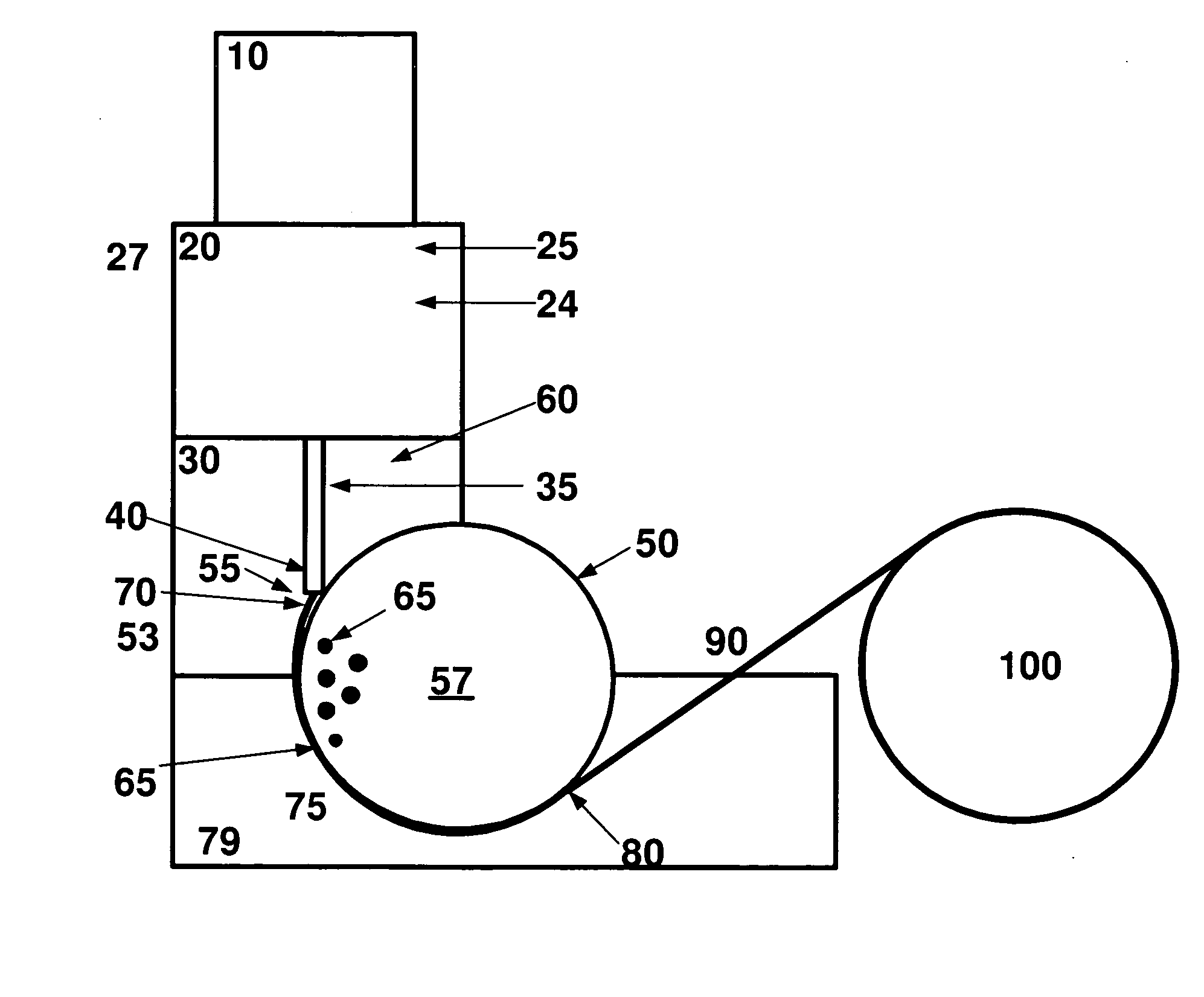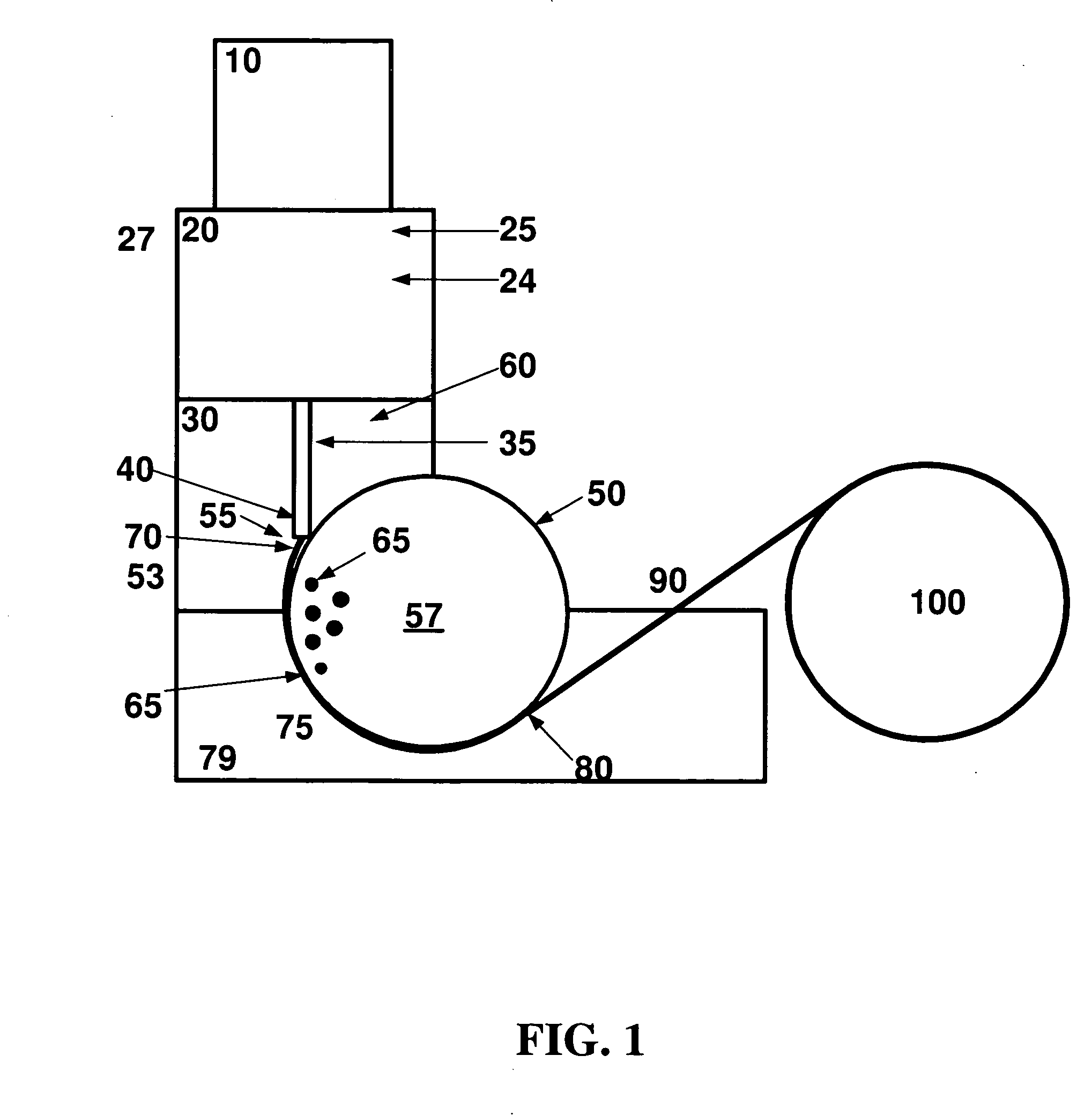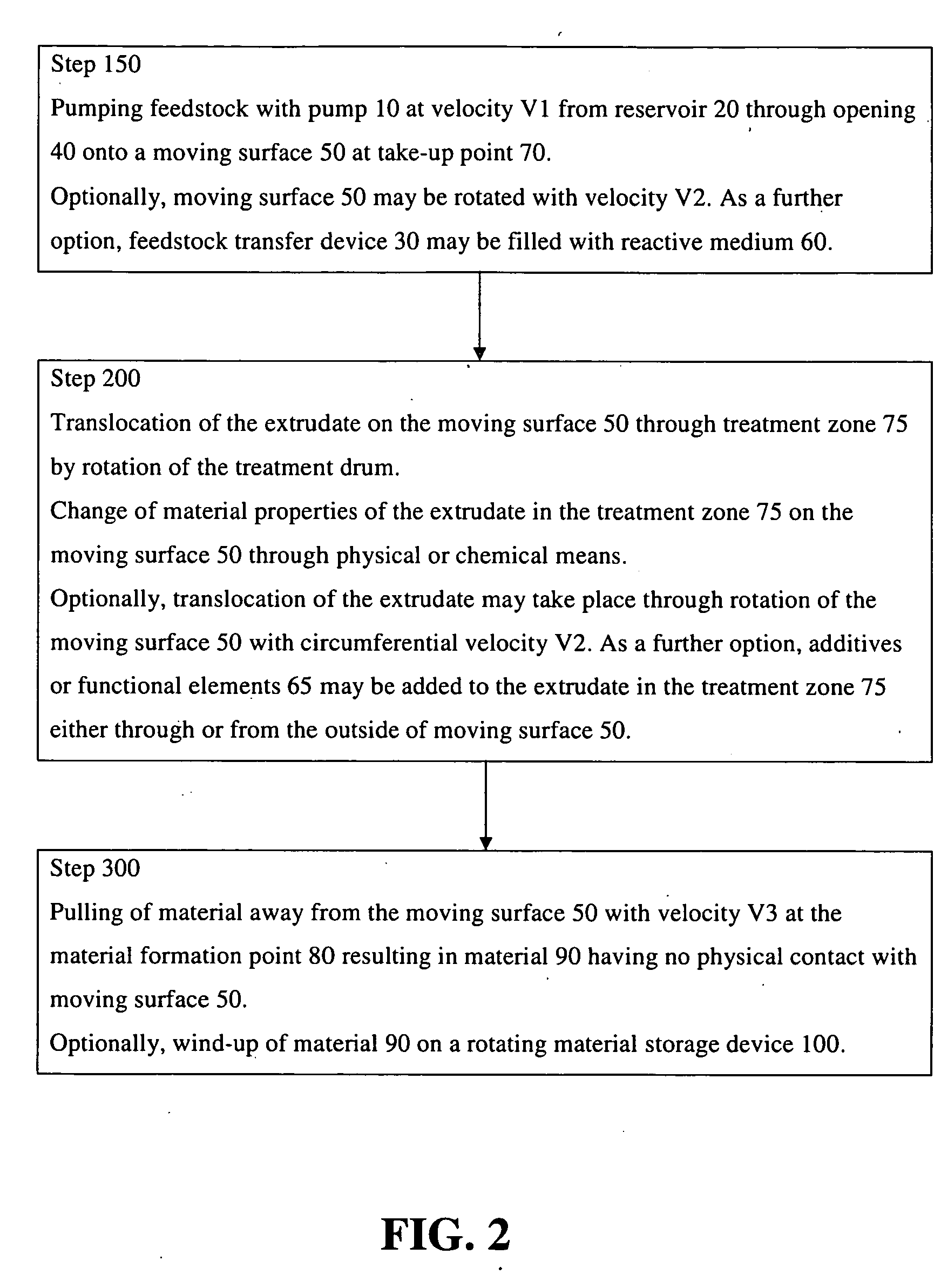Method and apparatus for the manufacture of a fiber
- Summary
- Abstract
- Description
- Claims
- Application Information
AI Technical Summary
Benefits of technology
Problems solved by technology
Method used
Image
Examples
example 1
[0115]The extrusion process of the invention was started by pumping an aqueous feedstock comprising a fibroin solution of about 20% wt / v fibroin concentration with a velocity V1 of about 0.3 mm / s through a channel with inner diameter of 0.7 mm onto a drum which rotates with a circumferential velocity V2 of about 1.5 mm / s and has a diameter of about 50 mm. The distance between the opening of the channel and the surface of the drum in this instance is less than 1 mm. The drum forms the moving surface.
[0116]The aqueous feedstock was prepared according the method described in UK Patent Application No. 0604089.3 “Method and Apparatus for Extraction of Arthropod Gland” filed by the Applicants, the disclosure of which is incorporated herein by reference. The drum was heated to a temperature of between 40 and 50° C. thereby enabling control of fiber formation on the surface of the drum through evaporation of the solvent from the extrudate. As soon as the extrudate was dry enough for pick-up...
example 2
[0118]A fibroin feedstock solution of about 7% wt / v fibroin concentration was extruded with a velocity V1 of 0.27 mm / s through a 0.8 mm channel onto a drum which rotates with a circumferential velocity of 1.5 mm / s and has a diameter of about 50 mm. The extruded material was then transported by the drum into a biological buffer bath containing 3 mM Copper. Following gelation of the extruded material on the drum after contact with the buffer bath, the extruded material was then picked up with a pair of forceps and collected on a take-up wheel as described in Example 1.
[0119]Tensile testing was performed of the finished product (at 10 mm crosshead speed) and shows that the “wet-spun” monofilaments (2.45 tex) had a tensile strength of 185.1 MPa and a tensile modulus of 5.9 GPa at a breaking elongation of 23.4%. The fibers were water insoluble and had silk-like optical and haptical properties.
example 3
[0120]A fibroin feedstock solution of about 10% wt / v fibroin concentration was extruded with a velocity V1 of 0.27 mm / s through five 0.8 mm channels aligned in a parallel fashion as demonstrated in FIG. 5 onto a drum. The extruded material was then treated as described in Example 2. The extruded fibers were water insoluble and had silk-like optical and haptical properties.
PUM
| Property | Measurement | Unit |
|---|---|---|
| Distance | aaaaa | aaaaa |
| Fraction | aaaaa | aaaaa |
| Fraction | aaaaa | aaaaa |
Abstract
Description
Claims
Application Information
 Login to View More
Login to View More - R&D
- Intellectual Property
- Life Sciences
- Materials
- Tech Scout
- Unparalleled Data Quality
- Higher Quality Content
- 60% Fewer Hallucinations
Browse by: Latest US Patents, China's latest patents, Technical Efficacy Thesaurus, Application Domain, Technology Topic, Popular Technical Reports.
© 2025 PatSnap. All rights reserved.Legal|Privacy policy|Modern Slavery Act Transparency Statement|Sitemap|About US| Contact US: help@patsnap.com



